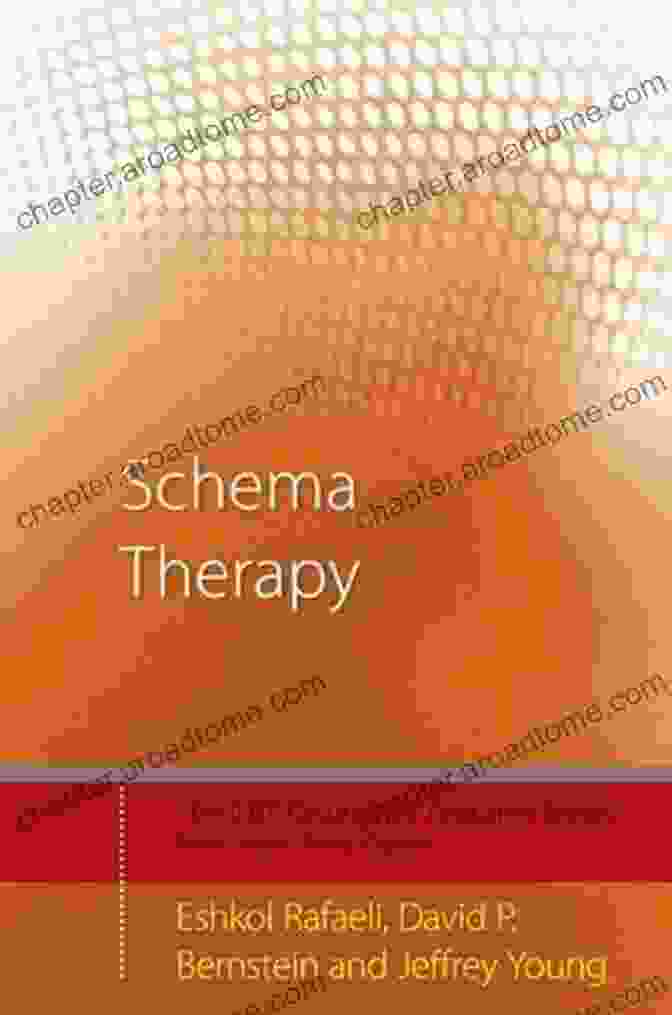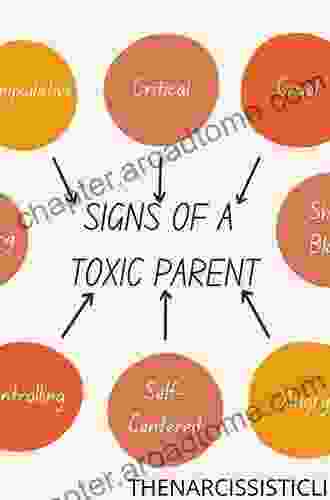Constructivist Psychotherapy: Distinctive Features That Set It Apart

In the realm of psychotherapy, constructivism stands out as a unique and empowering approach that challenges traditional notions of therapy. Unlike many other therapies that focus on uncovering past experiences or uncovering underlying conflicts, constructivist psychotherapy emphasizes the active role individuals play in constructing their own realities. By helping clients understand their thoughts, beliefs, and behaviors, constructivist therapists empower them to take ownership of their lives and create meaningful change.
4.3 out of 5
| Language | : | English |
| File size | : | 2916 KB |
| Text-to-Speech | : | Enabled |
| Screen Reader | : | Supported |
| Enhanced typesetting | : | Enabled |
| Word Wise | : | Enabled |
| Print length | : | 142 pages |
Core Principles of Constructivist Psychotherapy
At the heart of constructivist psychotherapy lie several core principles that distinguish it from other therapeutic approaches:
- Individuals construct their own realities: Constructivists believe that individuals do not passively receive information from the world around them. Instead, they actively engage in making sense of their experiences, creating their own interpretations and meanings.
- Cognition plays a central role: Constructivists emphasize the importance of cognition in shaping behavior and emotions. They believe that our thoughts, beliefs, and expectations influence our perceptions and actions.
- Language is a tool for constructing meaning: Language is not simply a means of communication. Constructivists view it as a powerful tool that we use to create and shape our understanding of the world.
- The therapist is a facilitator of change: Constructivist therapists do not see themselves as experts who have all the answers. Instead, they act as guides, helping clients explore their own narratives and develop their own insights.
Distinctive Features of Constructivist Psychotherapy
These core principles give rise to several distinctive features that set constructivist psychotherapy apart from other approaches:
Focus on the Present
Unlike many traditional therapies that focus on geçmiş experiences or uncovering unconscious conflicts, constructivist psychotherapy emphasizes the present moment. Therapists help clients understand how their current thoughts and beliefs are influencing their behavior and emotions.
Collaborative Relationship
In constructivist psychotherapy, the relationship between the therapist and client is collaborative. The therapist does not take on the role of expert but rather works alongside the client to explore their experiences and develop insights.
Emphasis on Language
Constructivists use language as a powerful tool for change. They help clients identify the language patterns they use and how they shape their perceptions and experiences. By challenging limiting beliefs and developing new narratives, clients can create more empowering and meaningful lives.
Attention to Meaning-Making
Constructivists believe that individuals are constantly making sense of their experiences. Therapists help clients understand the processes by which they create meaning, and how they can use this understanding to make more conscious and intentional choices.
Empowerment of the Client
The ultimate goal of constructivist psychotherapy is to empower clients. By helping them understand their own thoughts, beliefs, and behaviors, therapists enable them to take ownership of their lives and create lasting change.
Benefits of Constructivist Psychotherapy
Constructivist psychotherapy offers numerous benefits to clients, including:
- Increased self-awareness and understanding
- Improved communication and relationships
- Reduced stress and anxiety
- Enhanced coping skills and resilience
- Greater sense of purpose and fulfillment
Constructivist psychotherapy is a unique and empowering approach that can help individuals create meaningful change in their lives. By understanding the distinctive features of this approach, you can make an informed decision about whether it is the right fit for you. If you are looking for a therapy that will help you understand yourself better, develop your full potential, and live a more fulfilling life, constructivist psychotherapy may be the answer you've been seeking.

4.3 out of 5
| Language | : | English |
| File size | : | 2916 KB |
| Text-to-Speech | : | Enabled |
| Screen Reader | : | Supported |
| Enhanced typesetting | : | Enabled |
| Word Wise | : | Enabled |
| Print length | : | 142 pages |
Do you want to contribute by writing guest posts on this blog?
Please contact us and send us a resume of previous articles that you have written.
 Book
Book Novel
Novel Page
Page Chapter
Chapter Text
Text Story
Story Genre
Genre Reader
Reader Library
Library Paperback
Paperback E-book
E-book Magazine
Magazine Newspaper
Newspaper Paragraph
Paragraph Sentence
Sentence Bookmark
Bookmark Shelf
Shelf Glossary
Glossary Bibliography
Bibliography Foreword
Foreword Preface
Preface Synopsis
Synopsis Annotation
Annotation Footnote
Footnote Manuscript
Manuscript Scroll
Scroll Codex
Codex Tome
Tome Bestseller
Bestseller Classics
Classics Library card
Library card Narrative
Narrative Biography
Biography Autobiography
Autobiography Memoir
Memoir Reference
Reference Encyclopedia
Encyclopedia Sebastian G B Amyes
Sebastian G B Amyes Niranjan Khandelwal
Niranjan Khandelwal Mike Goodridge
Mike Goodridge Nicholas Terpstra
Nicholas Terpstra Shelley Buck
Shelley Buck Pam Dawling
Pam Dawling Morgan Murphy
Morgan Murphy Patrice Degoulet
Patrice Degoulet R Edward Hendrick
R Edward Hendrick Nikki Sixx
Nikki Sixx Robert C Davis
Robert C Davis Sundar Rushdie
Sundar Rushdie William C Miller
William C Miller Stanley Ruszczynski
Stanley Ruszczynski Michael Baigent
Michael Baigent Naya Lizardo
Naya Lizardo Nishi Singh
Nishi Singh Penney Upton
Penney Upton Mois Benarroch
Mois Benarroch Tobias Churton
Tobias Churton
Light bulbAdvertise smarter! Our strategic ad space ensures maximum exposure. Reserve your spot today!

 Vince HayesAn Introduction to Clinical Medicine 8e: The Essential Textbook for Aspiring...
Vince HayesAn Introduction to Clinical Medicine 8e: The Essential Textbook for Aspiring...
 Duane KellyNative Plants For New England Gardens: A Comprehensive Guide to Landscaping...
Duane KellyNative Plants For New England Gardens: A Comprehensive Guide to Landscaping...
 Zachary CoxUnlock Your Creative Potential: Master Adobe Photoshop Elements for Maximum...
Zachary CoxUnlock Your Creative Potential: Master Adobe Photoshop Elements for Maximum...
 Jayden CoxUnveiling the Making of Marine Officers: An Essential Guide to Leadership and...
Jayden CoxUnveiling the Making of Marine Officers: An Essential Guide to Leadership and... Orson Scott CardFollow ·5.4k
Orson Scott CardFollow ·5.4k Juan RulfoFollow ·15.7k
Juan RulfoFollow ·15.7k Gabriel BlairFollow ·8.3k
Gabriel BlairFollow ·8.3k Ruben CoxFollow ·8.1k
Ruben CoxFollow ·8.1k Andy ColeFollow ·17.2k
Andy ColeFollow ·17.2k Dion ReedFollow ·18.2k
Dion ReedFollow ·18.2k Devon MitchellFollow ·6.1k
Devon MitchellFollow ·6.1k Justin BellFollow ·5.5k
Justin BellFollow ·5.5k

 Samuel Beckett
Samuel BeckettPortrait of the Plague Doctor: A Chilling Tale of Fear...
Prologue: A...

 Elliott Carter
Elliott CarterTrends in Modeling and Simulation Studies in...
Unveiling the Convergence of...

 Natsume Sōseki
Natsume SōsekiCells For Kids: Science For Children
Unlock the Microscopic...

 Anthony Wells
Anthony WellsUnlock the Power of Understanding: Embrace the African...
Embark on a Journey of Truth,...

 Forrest Reed
Forrest ReedBreaking Free: Healing from Toxic Relationships Between...
Are you struggling...
4.3 out of 5
| Language | : | English |
| File size | : | 2916 KB |
| Text-to-Speech | : | Enabled |
| Screen Reader | : | Supported |
| Enhanced typesetting | : | Enabled |
| Word Wise | : | Enabled |
| Print length | : | 142 pages |






